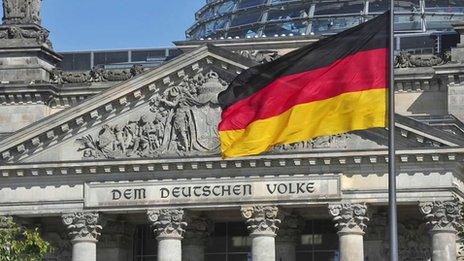German election: European press sees uncertainty ahead
- Published
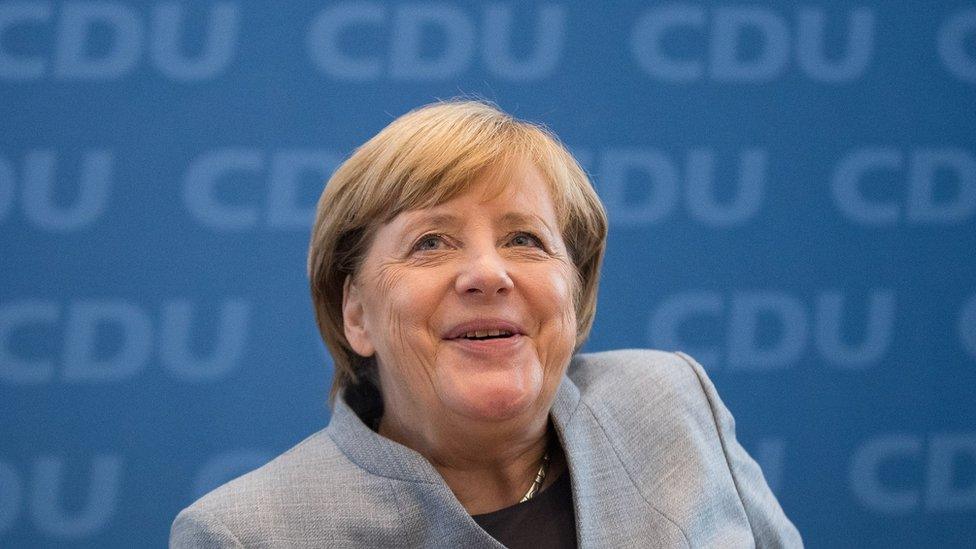
Chancellor Angela Merkel's conservative CDU/CSU bloc received its worst result in almost 70 years
The modest victory of Chancellor Angela Merkel's conservative alliance in the federal elections on 24 September has prompted European papers to envisage a period of uncertainty for Germany.
With the CDU/CSU bloc's worst result in almost 70 years, commentators discussed the need for a "Jamaica coalition", and expressed concern about the historic surge of the nationalist AfD party.
The "Jamaica" reference comes from the colours of Jamaica's flag. It includes the black CDU/CSU, the yellow Free Democrats (FDP) and the Greens.
Here is a round-up of press reports from around Europe:

Germany: 'Jamaica' coalition vs 'scaremongers'
"Nightmare win for Merkel" was the headline in Germany's best-selling tabloid Bild, external, which published a picture of a tired-looking chancellor with her eyes shut.
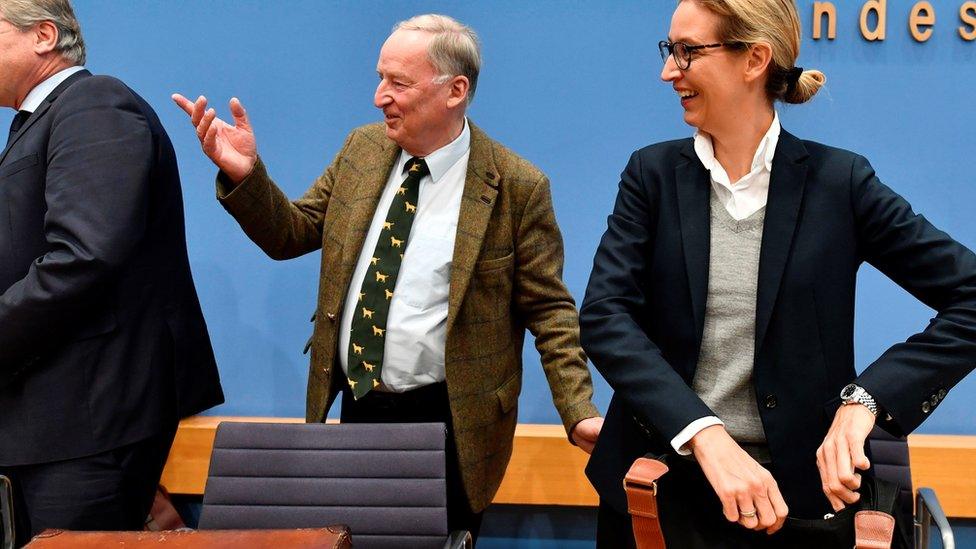
The AfD result resulted shocked many
Tanit Koch wrote in the paper that Merkel "failed to ease concerns about crime and Islamisation". She said these fears existed long before the refugee crisis of 2015 but politicians were "too genteel" to address them and now the AfD had "harvested the fruit".
Mrs Merkel's refugee policy was also seen as a crucial factor by Ulf Poschardt in Berlin's Die Welt., external He said while it was "disastrous" that the "left opposition in the Bundestag" had not attacked the policy, the media were also to blame. "Broadcasts, articles and debates ignored many citizens," he added.
Berlin's left-wing Tageszeitung focused on AfD co-leader Alexander Gauland with the headline "The rise of the scaremongers". "The retros, the racists - now they're in," was the paper's warning. It said AfD would "spread anxiety and stoke aggression".
German commentators also looked at Mrs Merkel's government options, particularly the "Jamaica" coalition of her Christian Democrats with the Greens and the liberal FDP.
Stefan Braun headlined his piece in Munich's Sueddeutsche Zeitung, external "Now it's time for Jamaica" but admitted that her fourth term in office would not be easy.

France: Merkel out of comfort zone
In France, most papers agreed that Mrs Merkel's "quest for a majority" would not be easy.
"For the chancellor, it is the end of a rather comfortable alliance," the left-leaning daily Le Monde, external said in its article headlined "Merkel weakened in the face of a largely unprecedented political landscape". It noted that the eight years during which she had governed with the Social Democrats were "politically quiet, after all".
The paper stressed, though, that in France, it was difficult to grasp the "shock" from the election outcome. According to Le Monde, the fact that the Conservatives had come first and Mrs Merkel had every chance to remain chancellor meant that the situation in Germany had nothing to do with France's "wave of degagisme". The latter can be translated as "clear-outism".
Conservative Le Figaro, external spoke of a "bitter victory" for Mrs Merkel, who had been "sanctioned by voters". The paper noted that the start of her fourth term was "stained by the success of the far-right AfD".
Left-wing Liberation, external called AfD's score "the biggest shock of the evening" and noted the party's "anti-immigrant, anti-Islam, anti-euro and revisionist rhetoric".

Poland: German politics pushed to the right
Polish media were also alarmed by the AfD's success.
In an article entitled "AfD is a dangerous alternative for Germany", leading daily Gazeta Wyborcza, external noted that "for the first time since the end of World War II, a far-right fascist party will make it to the Bundestag".
Pundit Katarzyna Lubnauer suggested on the rolling news channel TVN24 that AfD might "push German politics to the right" as it would "have a strong voice and enjoy solid funding".
A former Polish MEP from the ruling PiS party, Zbigniew Kuzmiuk, agreed the party's "strong presence in the German parliament [would] change German policies in two areas - migrants and climate".
The editor of the popular Polish weekly Newsweek Polska, Tomasz Lis, tweeted, external: "AfD means the same alternative for Germany as the PiS for Poland - nationalism, resentment, hate for refugees, love for the East."
By contrast, the publication wPolityce.pl tweeted , externala link to an article by well-known journalist Jacek Karnowski, who welcomed AfD's success: "For our neighbours, the AfD's result marks the beginning of true democracy. And this is good news."

Russia: 'Howling success' for AfD
State-owned Rossiyskaya Gazeta notes "a historical defeat for the social democrats [SPD] and a howling success for the [right-wing populist] Alternative for Germany party".
Privately owned RBC, meanwhile, ponders the possible make-up of a ruling coalition. "The preservation of the so-called Grand Coalition of the CDU and SPD is hardly likely," the paper writes.

Spain: Consensus needed
Spain's El Pais, external said the Germans had opted for a "pragmatic leader" once again. "Angela Merkel, a leader without ego who guarantees stability," the paper's correspondent Ana Carbajosa writes.
El Pais highlighted the need for Mrs Merkel to unite with the Greens and the Liberals. "If Angela Merkel does not reach a consensus, the country will be facing a new election, an alternative that would only speed up the collapse of the two major German parties," the paper said.

Turkey: 'Neo-Nazis' in German parliament
The words "Nazis" and "racists" cropped up a lot in the Turkish press following the news that AfD had made it to the Bundestag.
"Hitler in parliament", the centrist newspaper Posta said, adding that the German election results had "shocked the world".
"Neo-Nazis entered the German parliament 72 years on," pro-government centrist Sabah said.
Centre-left Star spoke of "a Nazi shock in Germany", suggesting that the "anti-Turkey rhetoric" by Mrs Merkel and Social Democrat Martin Schulz had "played into the hands of the extreme right".
"Racists are in parliament in Germany," centre-right Haber Turk writes, and pro-government Aksam says "Nazism has risen from the dead".
BBC Monitoring, external reports and analyses news from TV, radio, web and print media around the world. You can follow BBC Monitoring on Twitter, external and Facebook, external.
- Published25 September 2017
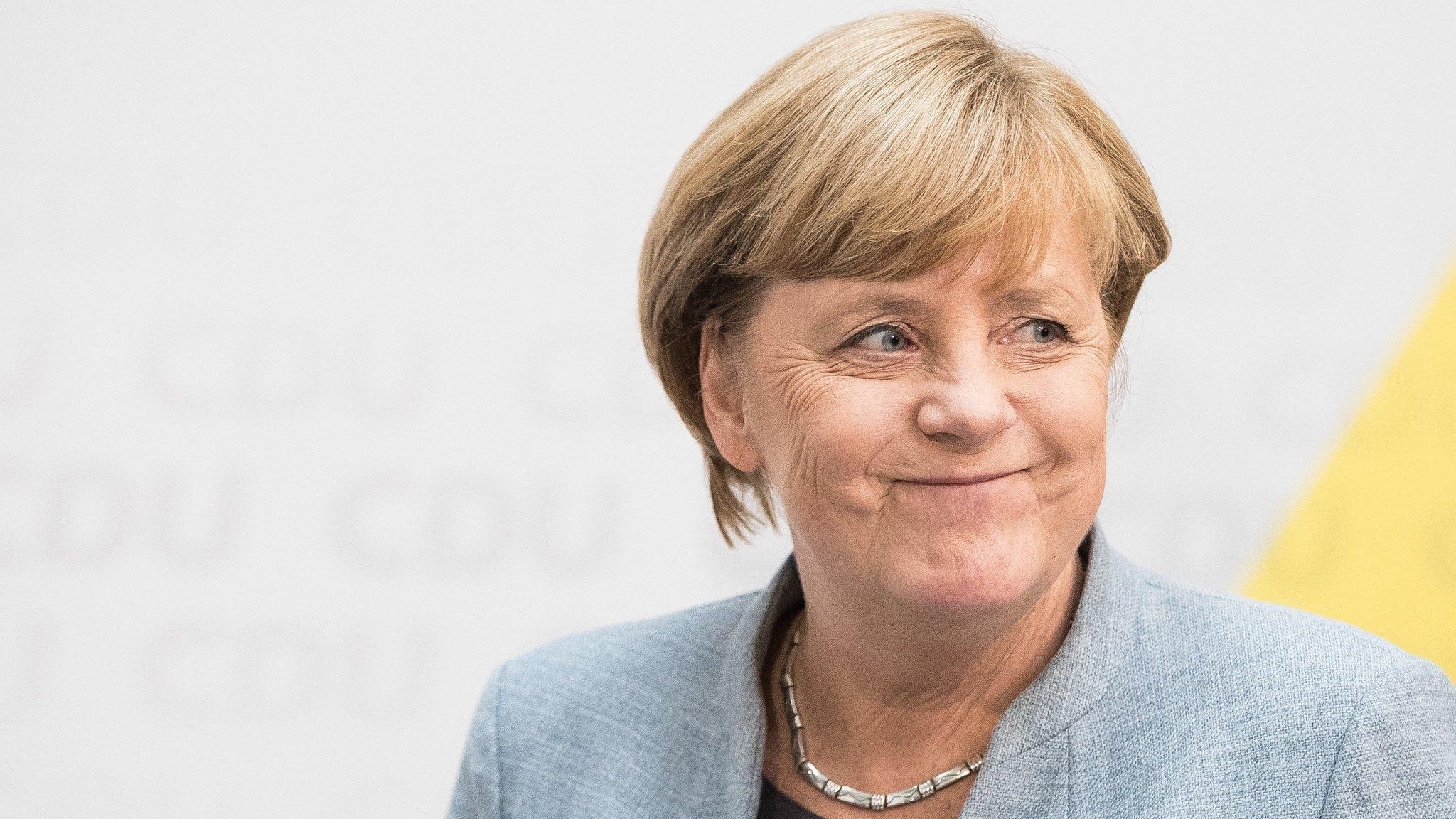
- Published24 September 2017
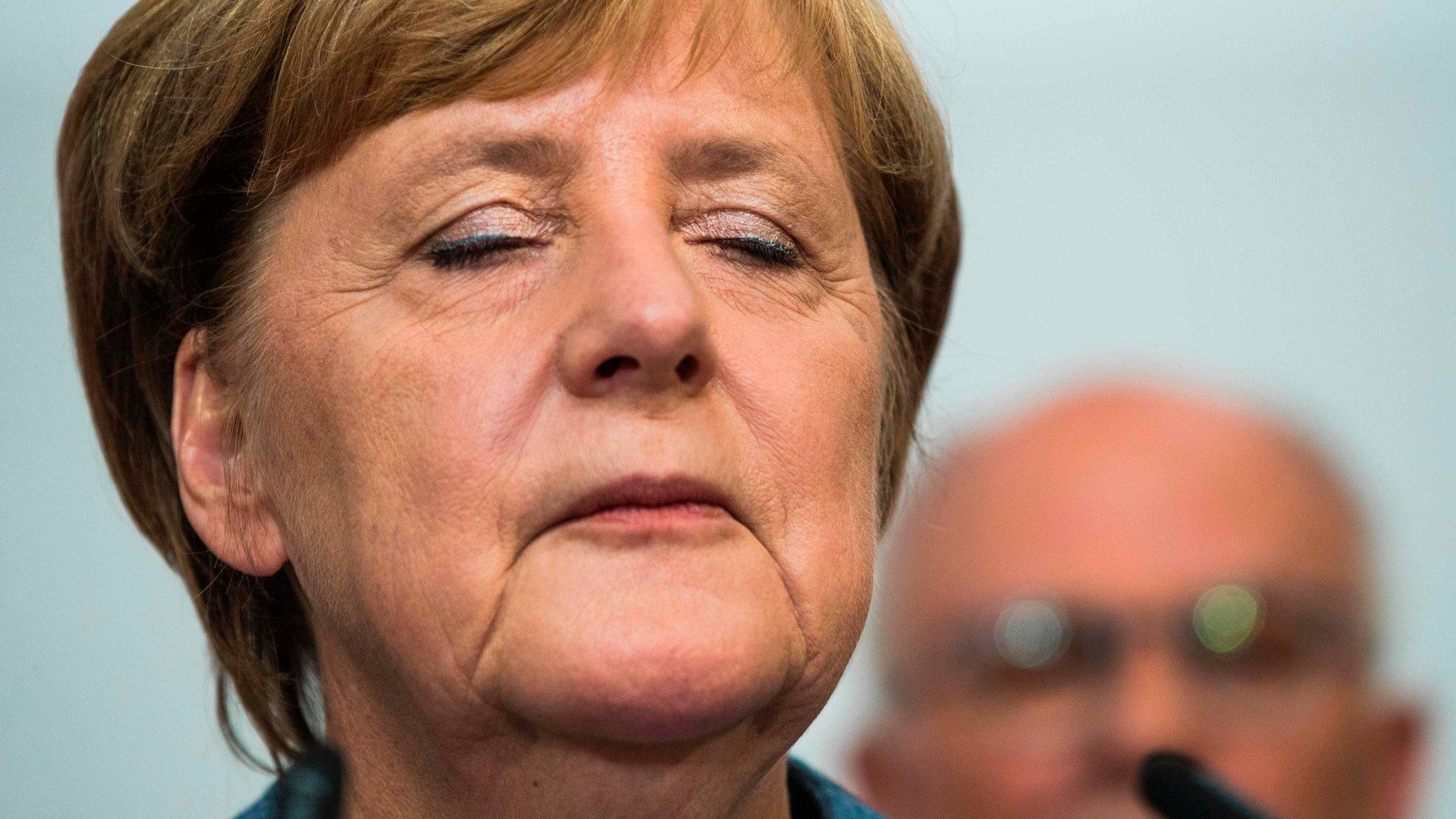
- Published25 September 2017
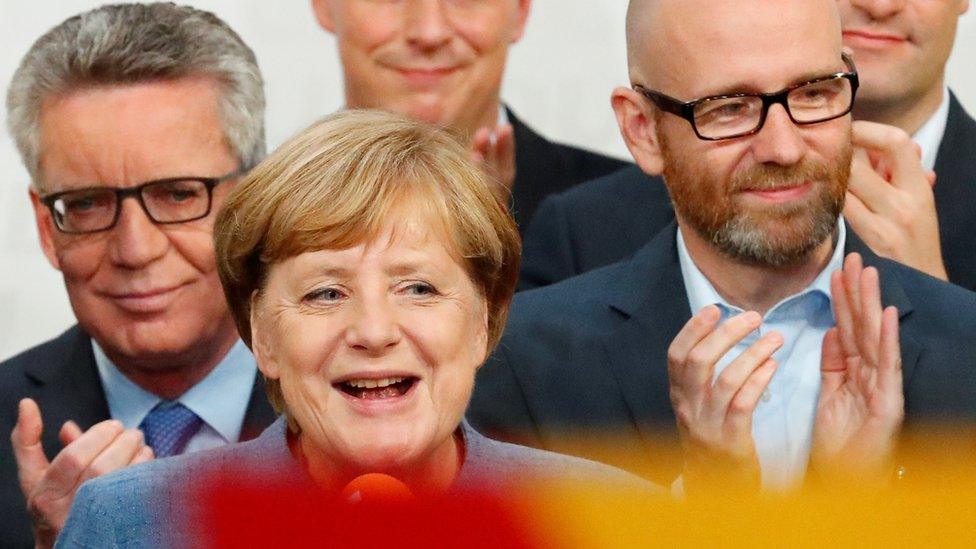
- Published11 February 2020

- Published22 September 2017

- Published23 September 2017
